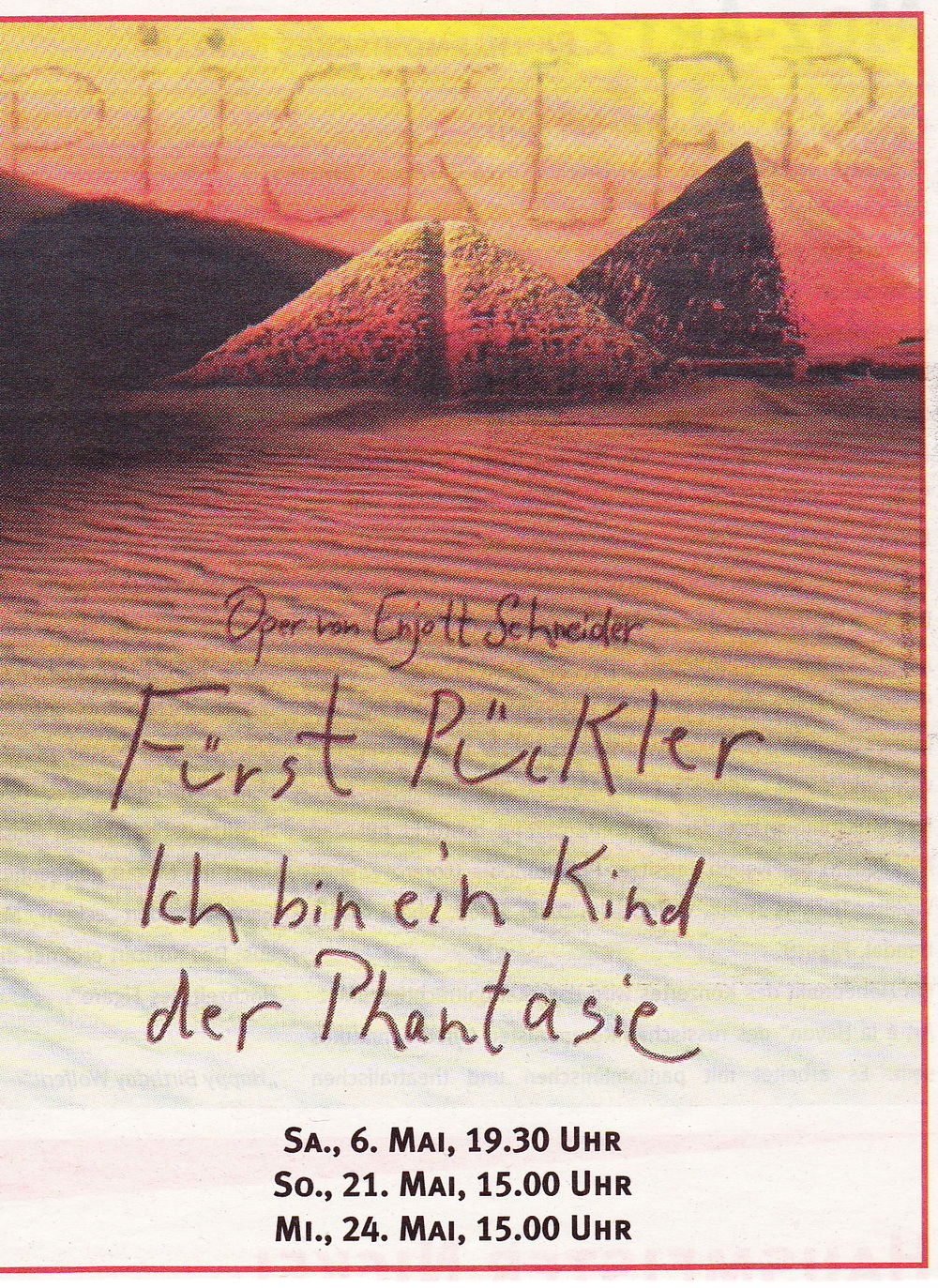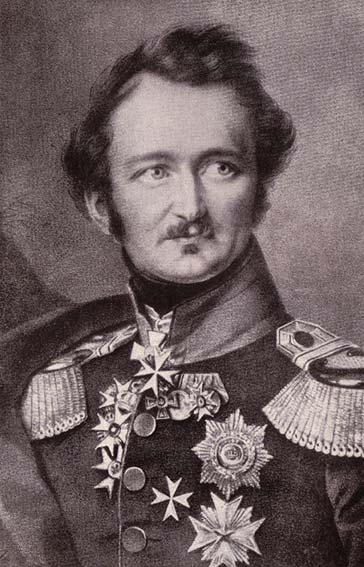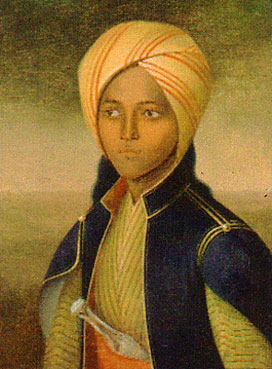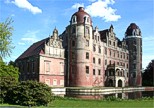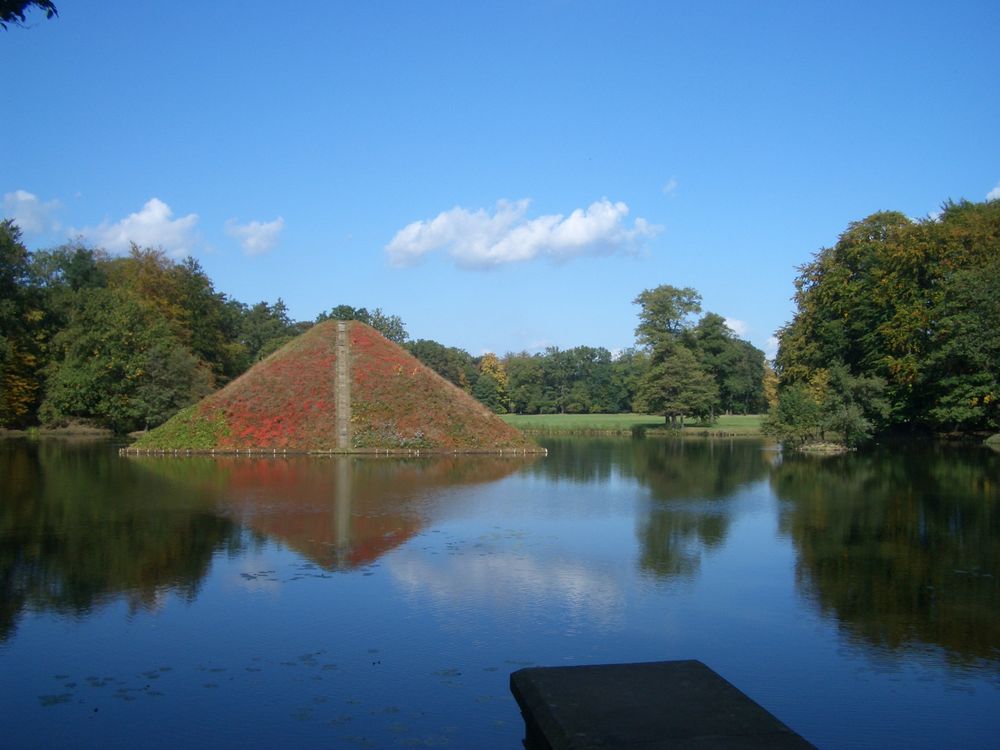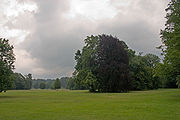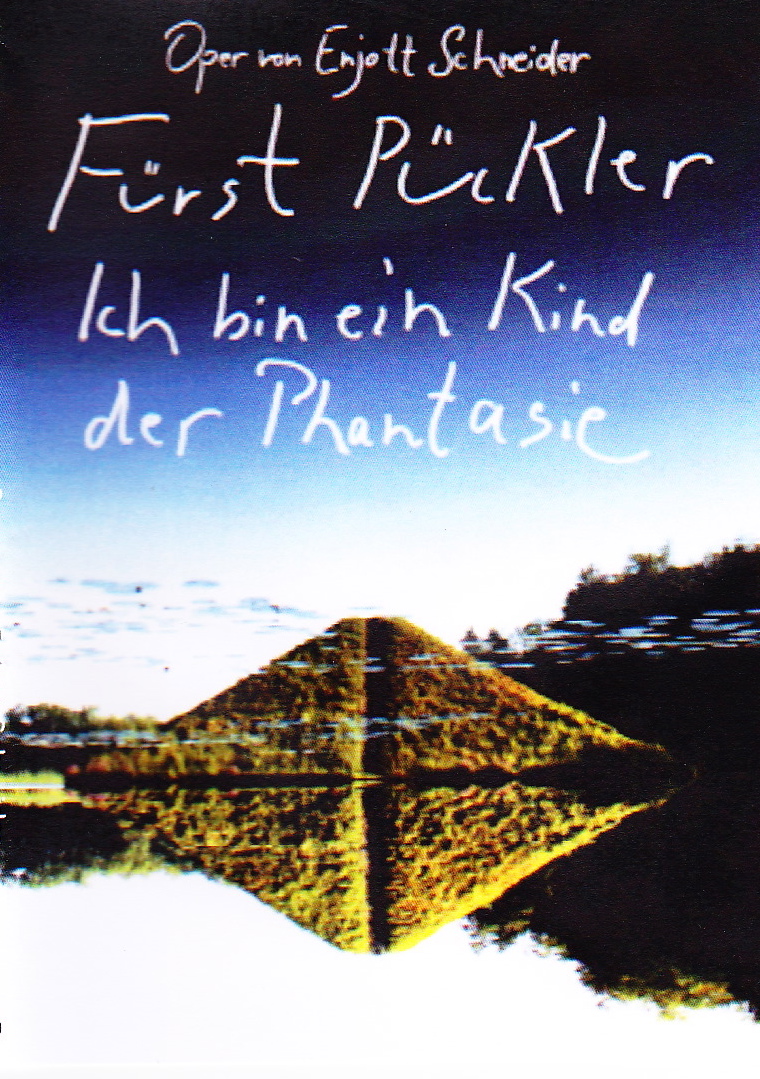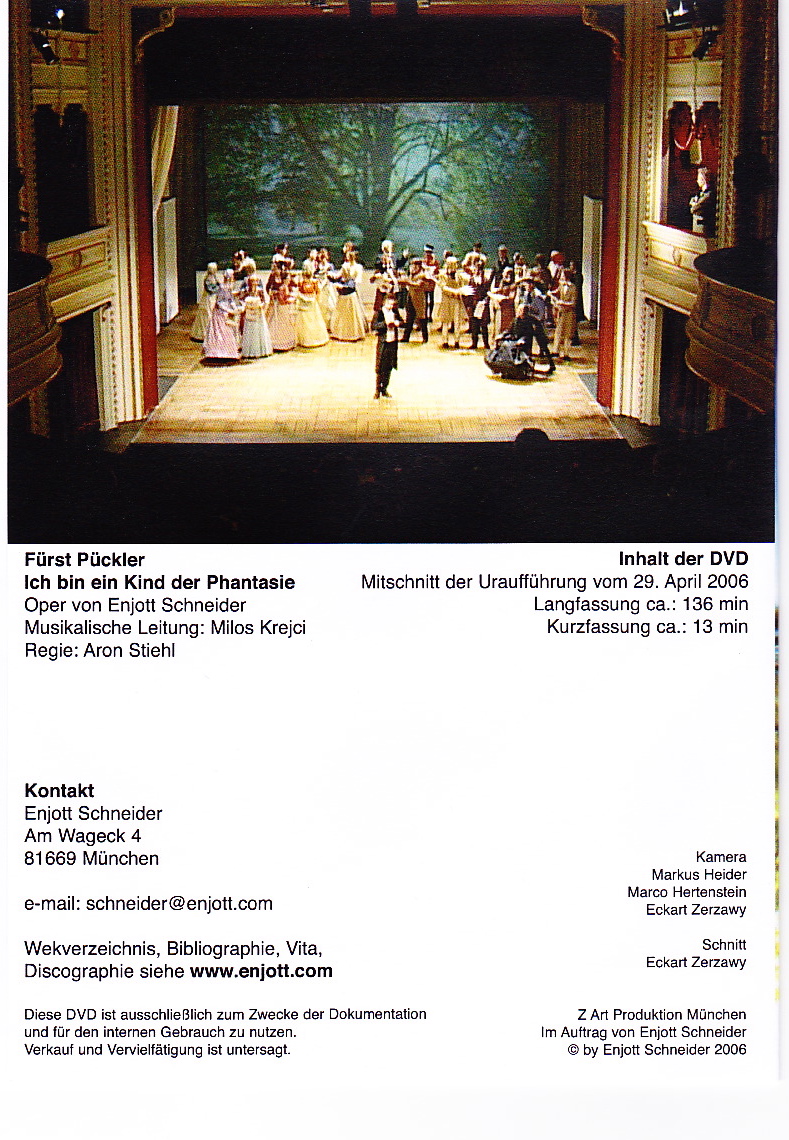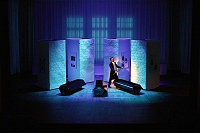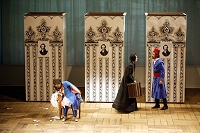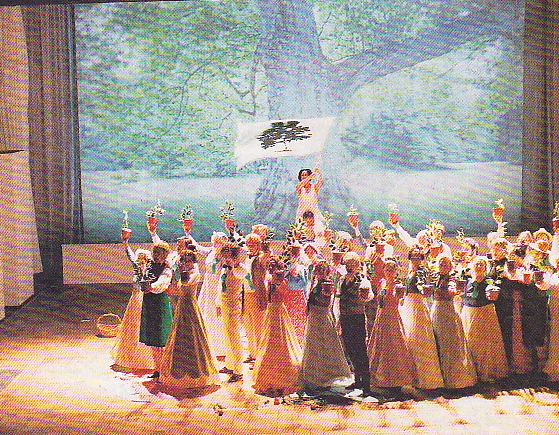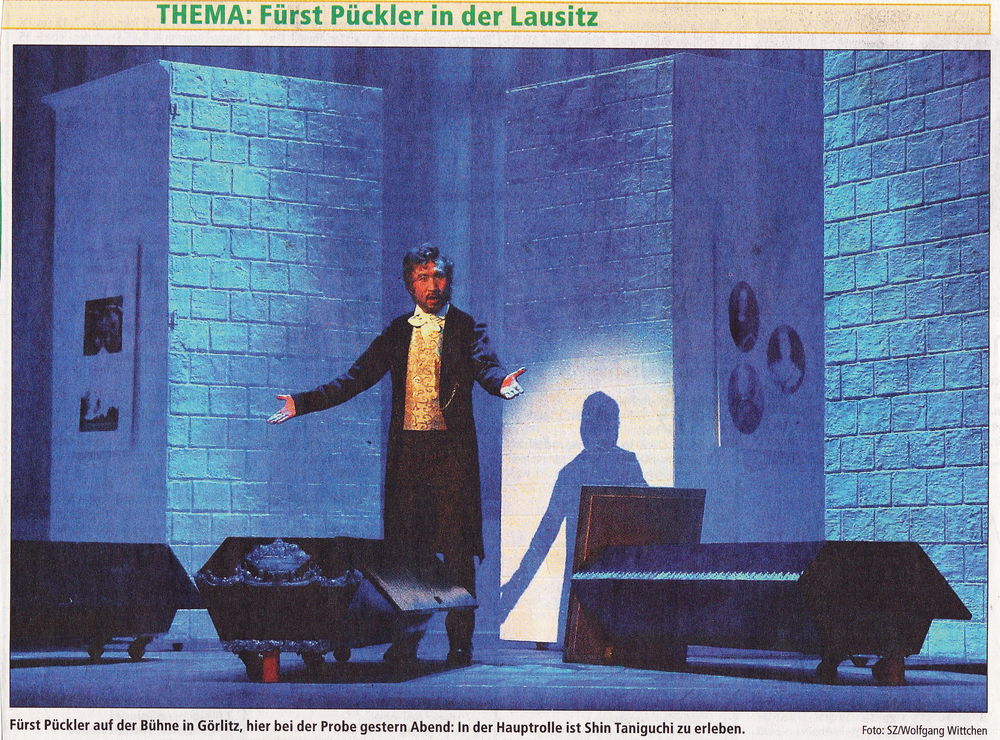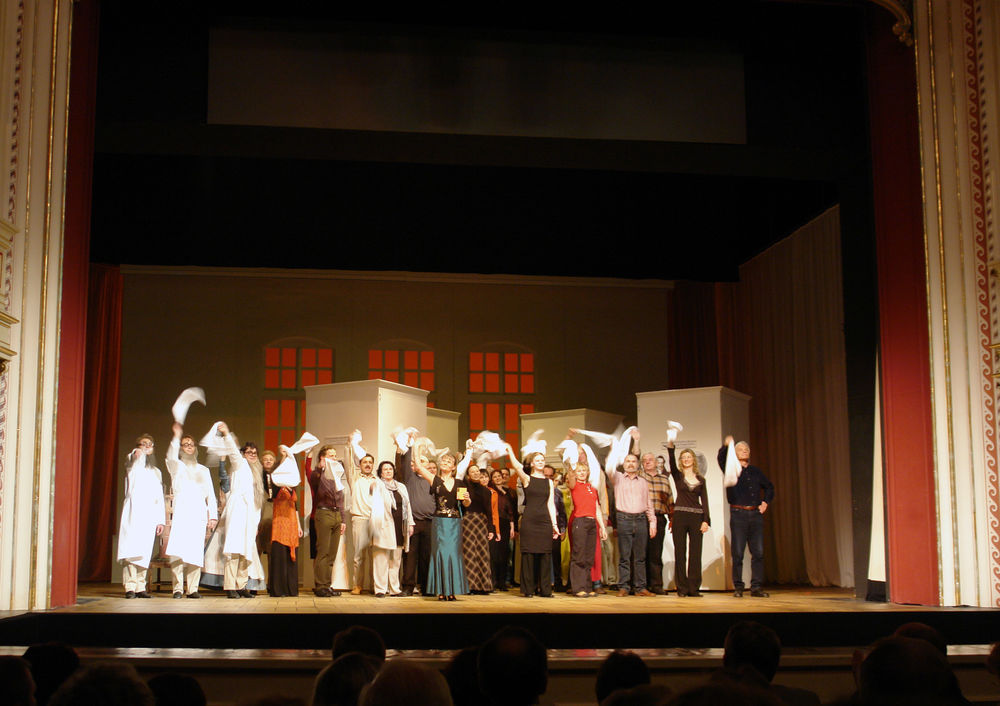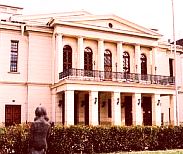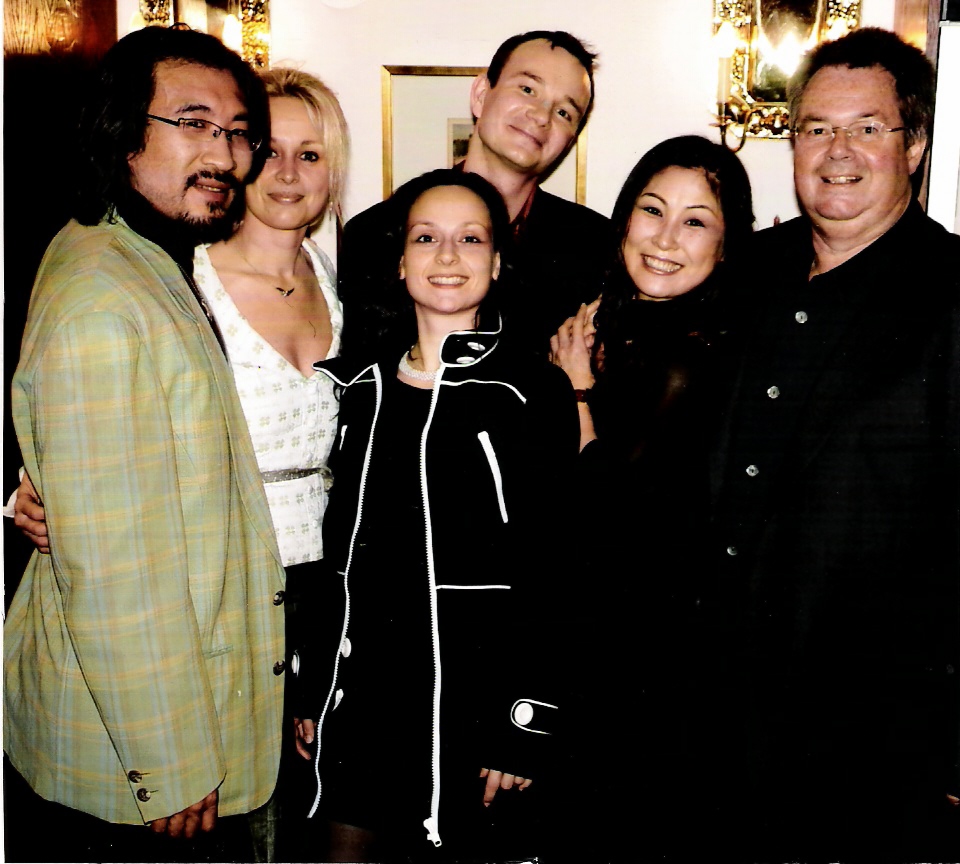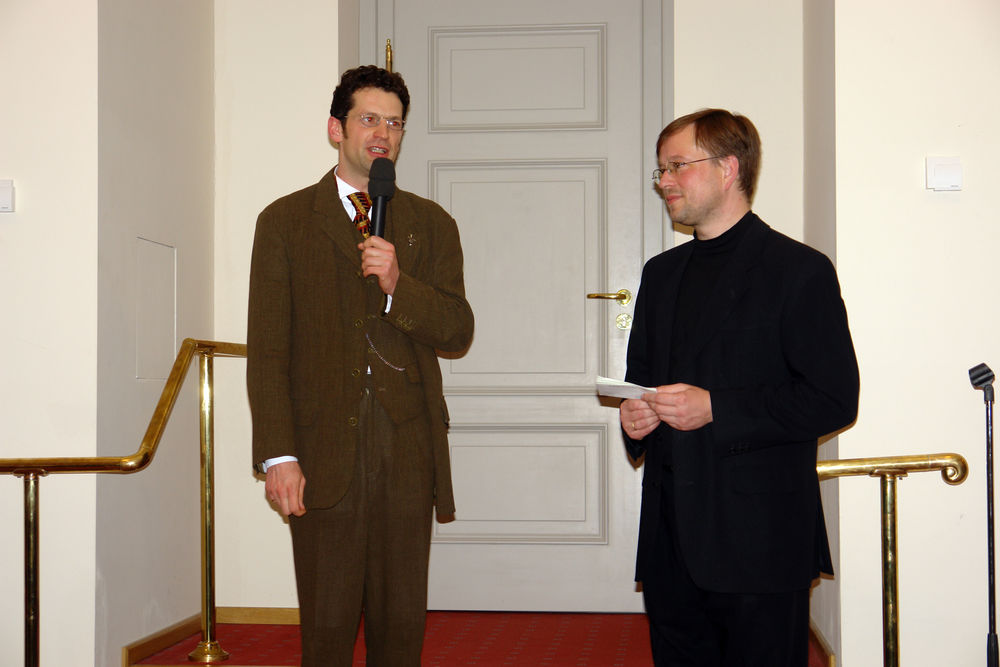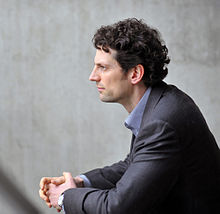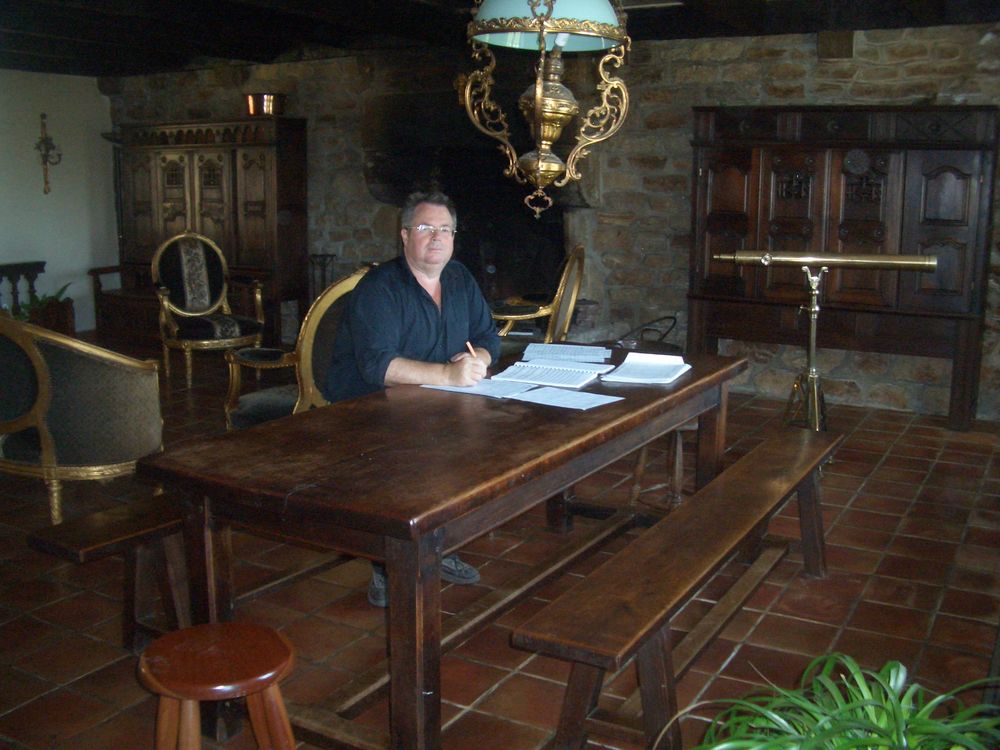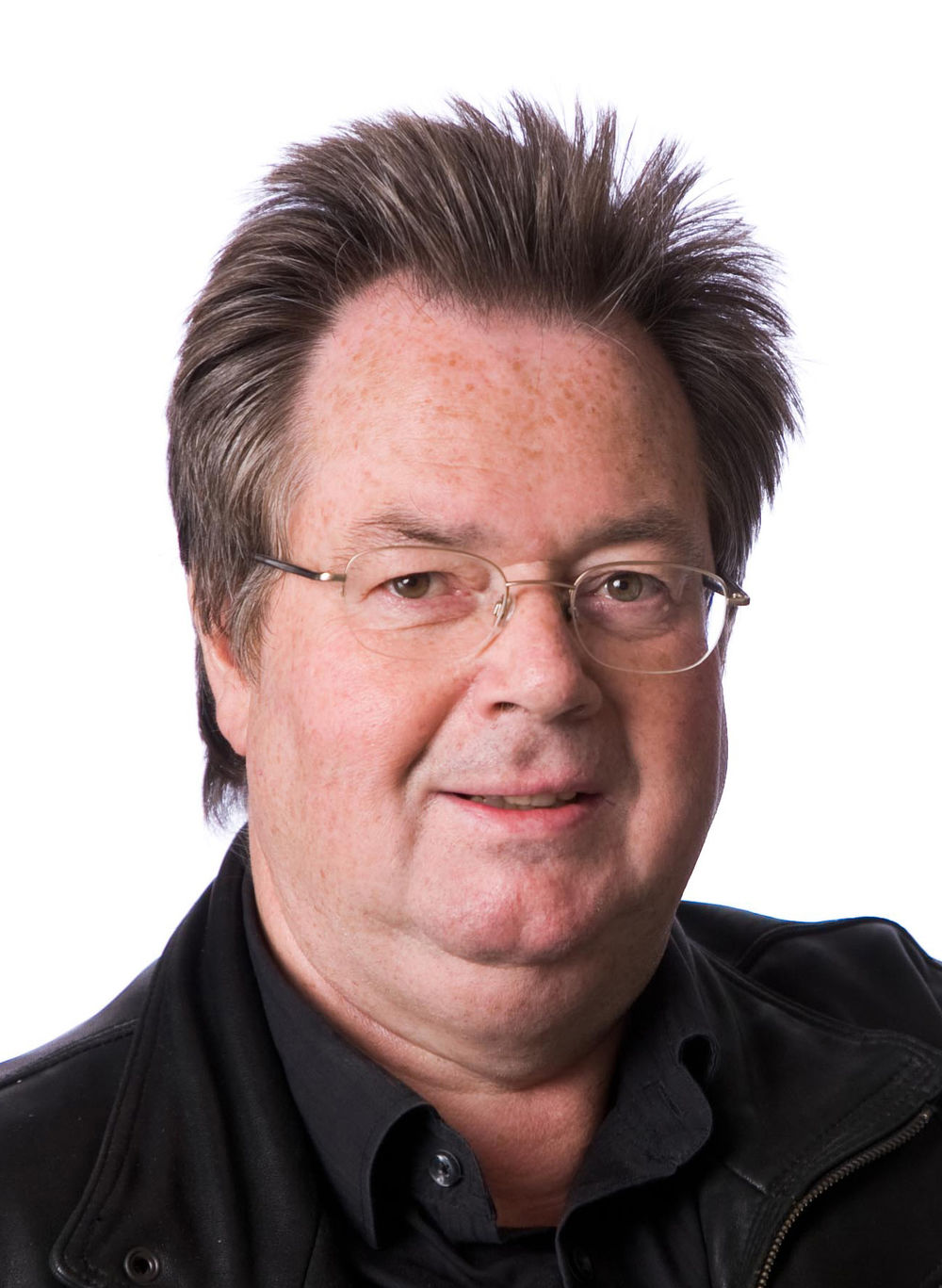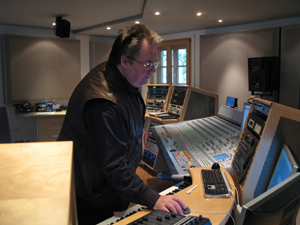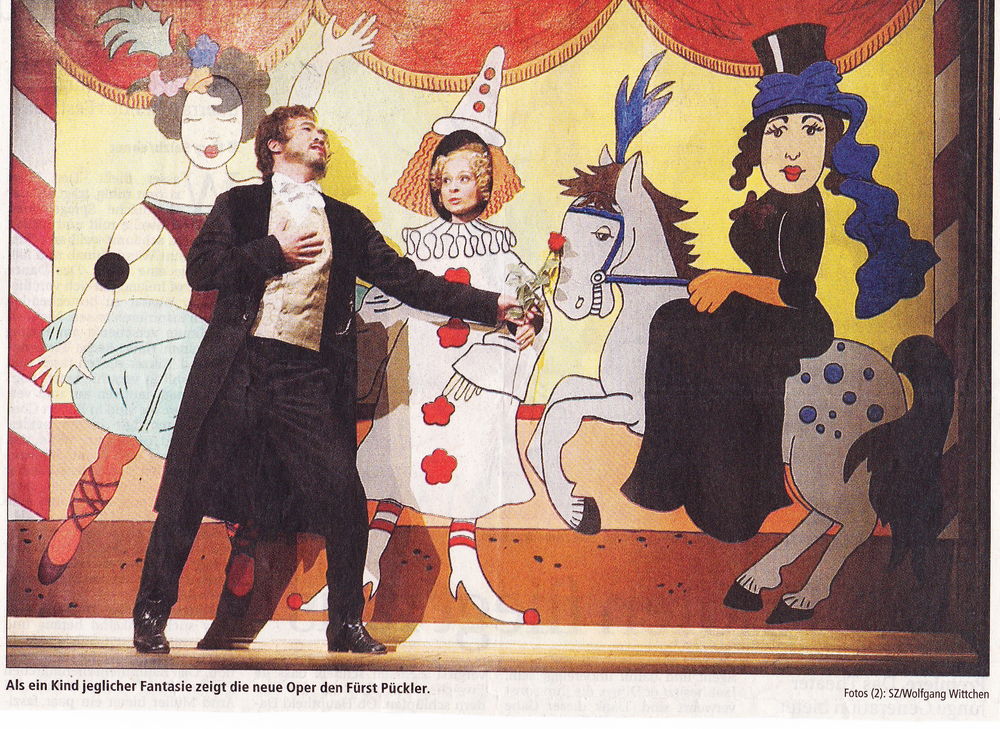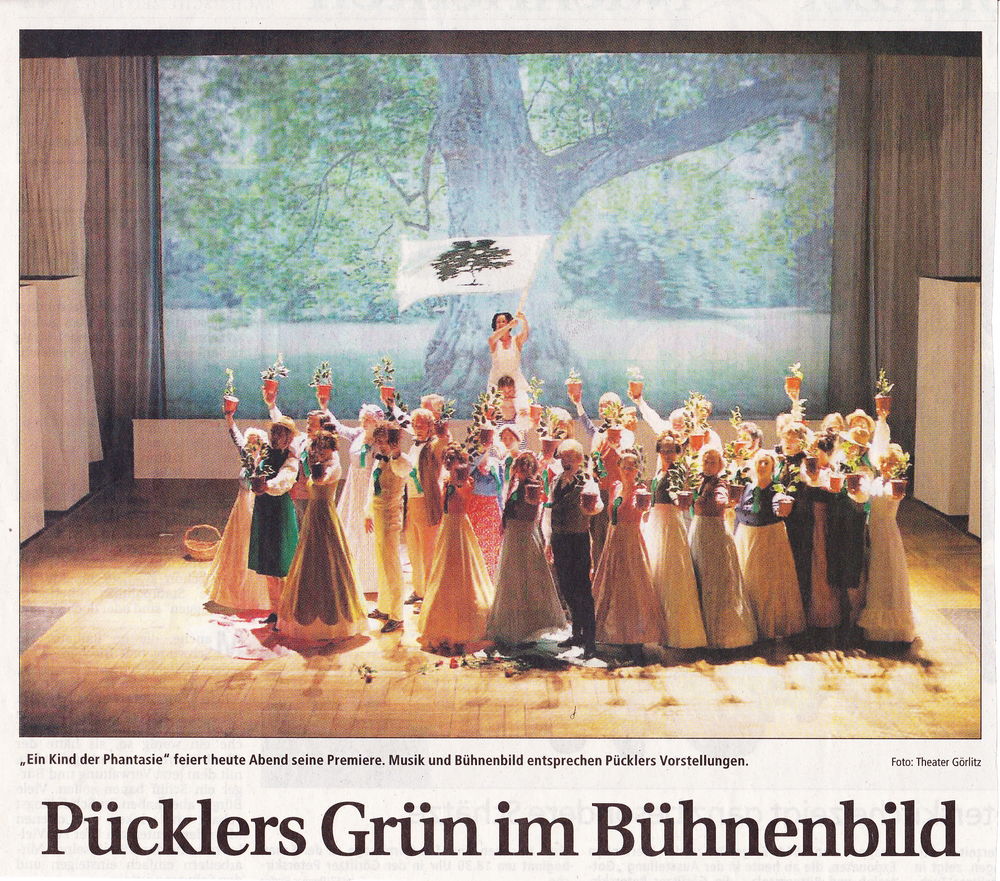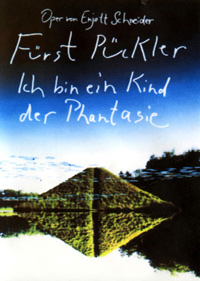
Category: Opera / Music Theatre
Duration: 3 hours
Publisher of notes/sheet music: Schott Music GmbH , Leihmaterial , 2006
Instrumentation: Singers:
Heroic baritone: Prince Pückler (A ? e1, f1)
Dramatic soprano: Lucie / 'Woman 1, the motherly' (d1 ? g2, max. a2)
Lyrical soprano: Hermine / ?Woman 2, childish'
(e1 ? h2)
Mezzo soprano: Adelheid / ?Woman 3, intellectual?
(a1 ? e2)
Lyrical soprano: Machbuba (e1 ? g2, very simple, childishly naive)
Tenor: Goethe, then High Caron, Mehmed Ali/Dr. Liersch (e ? a1)
Man 1 (Tenor): 1. servant, 1. farm hand, Brenzlow privy council ,1.slave, Dr. Richter (e ? a1)
Man 2 (Baritone): 2. servant, 2. farm hand,
2.slave, Dr. Malin (B ? f1)
Man 3 (Bass baritone): sexton, 3. servant, 3. farm hand, colonel Kurssel, Dr. Freund, Dr. Rabenhorst F-es2
The roles of Goethe and men 1-3 can be sung by different people if the ensemble is big enough
Opera chorus
Ballet ad libitum
Orchestra:
2 flutes (2. also Piccolo)
2 oboes (2. also Engl. Horn)
2 clarinets in B (2. also Bass clarinet in B)
2 bassoons (2. also contra bassoons)
4 horns in F
3 trombones (T-T-B)
Tuba
Harp
Piano
2 percussionists (without kettledrums and mallet instruments)
Percussion I: snare drum, small and mediom cymbals, belltree, temple blocks, metal chimes, triangle, 2 sand paper blocks, water glas
Percussion II: bass drum, small and medium cymbals, whip, glockenspiel, xylophone, flexaton, claves, tambourine, 3 gongs, water glass, tam tam
large string section (at least: 12-10-8-6-4)
Text/Lyrics by: Libretto by Bernd Matzkowski, Enjott Schneider, Michael Walter
Introduction: was composed in 2005 as a grand opera in 10 scenes for soloists, chorus, ballet and orchestra and premiered in 2006 at the Görlitz Theater. Pückler is an unjustly forgotten leading German figure: Faustian, curious, daring, cosmopolitan, European, writer, extroverted, keeping the newly emerging "Yellow Press" busy, introverted romantic with a death wish. He has the delusion of the industrious artist and sees his duty before God to lead an active life from early morning to late at night at full speed. Within weeks, the libretto was created, which was researched as precisely as the script for a documentary film: the scenes should be truthfully accurate (from the tomb scene at the start of the opera, the fake funeral to the anatomical dissection of the corpse at the end of opera). Enjott Schneider’s idea was to ‘invent’ as little text as possible, but to draw ‘original sound’ out of Pückler’s letters and written documents. Co-author Bernd Matzkowski had the space to elaborate unabashedly in his text passages. Stylistically, the opera - in analogy to Pückler’s multiple facets - is extremely diversified: Pückler’s theme for the most intimate moments is based on a twelve tone series (the violin is his Leitklang)and forms an artificial layer supported by a highly differentiated instrumentation.
But there are also folk-like, hymnic and dance-like elements (especially because of the integrated ballet; the choir is also required to represent the ‘society’). The musical sounds are often reduced to noise, to scraping, creaking and rasping, which, when used simultaneously with operetta-like rhythms (‘Can Can’ and ‘Polka’), brings about musical grotesques. In three hours of suspense, the opera tries to do justice to the titan figure of Pückler, the cosmopolitan ‘European’ of the 19th century, the park designer (from Muskau, Branitz to Bois de Bologne), the writer (with higher sales than Heine and Goethe altogether), the bizarre workaholic and womanizer, who lived a biography which literally cries out for an appropriate form of operatic presentation. All of this accompanies him on his endless search for ‘woman’ and ‘nature’ in a combination -rarely found on opera stage: of comedic grotesque and true romantic feeling. Scores at Schott Music.
World premiere: 04.05.2006, Theater Görlitz
Performers at world premiere: Shin Tanigucchi (Baritone) as Pückler, Yvonne Riech as Lucie, Mi-Seon Kim as Machbuba, Görlitz theatre soloist ensemble and choir , Görlitz-Ballet, Neue Lausitzer Philharmonie, conducted by Milos Krejci, director: Aron Stiehl, stage design and costumes: Karen Hilde Fries
Press reviews for world premiere: Die Welt (4.5.2006):
Schneider's opera changes between popular play opera and quiet portrait, moves musically through every register from sloping revue tones up to quietly speckled accents. Time is briefly connected to the music, then again it paints broadly. The new Lusatian philharmonic orchestra, conducted by Milos Krejci brings all facets to this sound to light... After nearly three hours of elation in the Görlitzer theatre (Ute Grundmann).
Records: privat, 2008
Performers on recording: A private live recording by Z-Art, Munich, with three cameras is available
